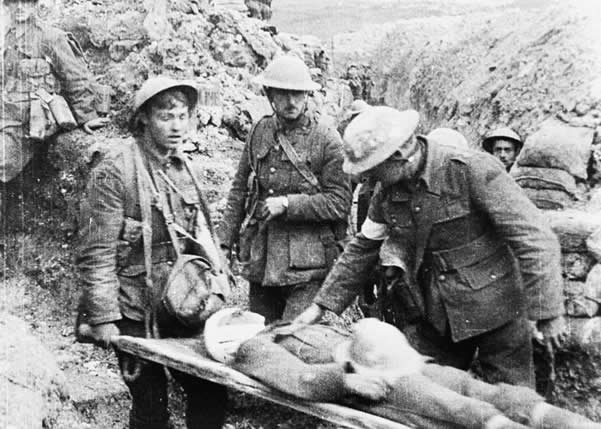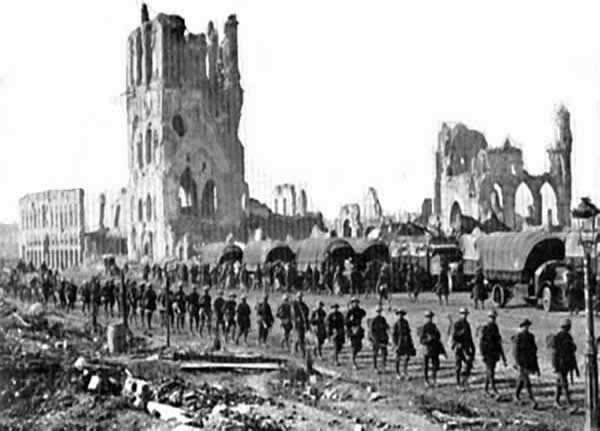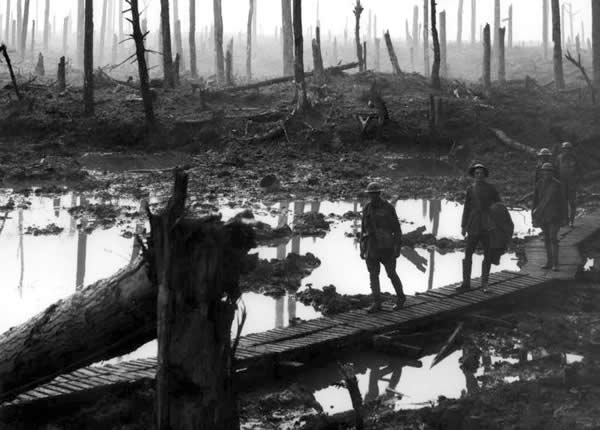WW1 -1914
On 28 June, in Sarajevo, Gavrilo Princip assassinated Archduke Franz Ferdinand.Europe was linked by a series of diplomatic alliances - Austria Hungary Germany Italy (Central Powers) and Britain/France/Russia (Triple Entente/Allied forces) - the affair escalated into full-scale war.
Major Battles of WW1| Battle of Liege | Opened 05 August 1914 |
| Battle of the Frontiers | Opened 05 August 1914 |
| Battle of Mulhouse | Opened 07 August 1914 |
| Battle of Haelen | Opened 12 August 1914 |
| Invasion of Lorraine | Opened 14 August 1914 |
| Battle of Stalluponen | Opened 17 August 1914 |
| Battle of Gumbinnen | Opened 20 August 1914 |
| Battle of the Ardennes | Opened 21 August 1914 |
| Battle of Charleroi | Opened 21 August 1914 |
| Siege of Namur | Opened 21 August 1914 |
| Battle of Mons | Opened 23 August 1914 |
| Capture of Dinant | Opened 23 August 1914 |
| Siege of Maubeuge | Opened 25 August 1914 |
| Destruction of Louvain | Opened 25 August 1914 |
| Battle of Le Cateau | Opened 26 August 1914 |
| Battle of Tannenberg | Opened 26 August 1914 |
| Battle of Heligoland | Opened 28 August 1914 |
| Battle of Guise | Opened 29 August 1914 |
| Siege of Tsingtao | Opened 02 September 1914 |
| First Battle of the Marne | Opened 06 September 1914 |
| First Battle of the Masurian lakes | Opened 09 September 1914 |
| Battle of Bita Paka | Opened 11 September 1914 |
| First Battle of the Aisne | Opened 12 September 1914 |
| First Battle of Albert | Opened 25 September 1914 |
| Battle of Sandfontein | Opened 26 September 1914 |
| Siege of Antwerp | Opened 28 September 1914 |
| First Battle of Arras | Opened 01 October 1914 |
| First Battle of Ypres | Opened 14 October 1914 |
| Battle of the Yser | Opened 18 October 1914 |
| Battle of Coronel | Opened 1 November 1914 |
| Battle of Tanga | Opened 3 November 1914 |
| Capture of Basra | Opened 5 November 1914 |
| Battle of Qurna | Opened 03 December 1914 |
| Battle of the Falkland Islands (SA) | Opened 08 December 1914 |
| Raid on Scarborough and Hartlepool (UK) | Opened 16 December 1914 |
| Battle of Givenchy | Opened 18 December 1914 |
| First Battle of Champagne | Opened 20 December 1914 |
On 4 August, Britain declared war after Germany invaded neutral Belgium (Britain declared war on Austria-Hungary on 12 August). The British government had previously promised to defend Belgium and felt that German troops directly across the Channel were too close for comfort. On 7 August, four divisions making up a British Expeditionary Force crossed to France to attempt to halt the German advance. With French forces, they were successful in achieving their objective at the Battle of Mons (August) and the Battle of the Marne (September). As each side tried to outflank the other, a 'race to the sea' developed and this meant that huge trench systems took shape from the Swiss border through all of northern France. With these trench systems and weapons such as the machine gun, defending was considerably easier than attacking, and so within months of beginning, the war was already showing signs of stagnating.
Although the war in Europe was the main focus - as with the first battle of Ypres (October) - the conflict soon truly became a 'world war': Japan was allied to the Entente forces and the Ottoman Empire soon joined the Central Powers. Conflict between the imperial forces of these competing power-blocs in Africa and South America aggravated the situation.
Like previous continental wars, confrontation was not confined to land. Prior to the outbreak of war, there had been an arms race orientated towards the building of the most up-to-date battleships. Although the British fleet was still by far the largest in the world, the German fleet was new and well equipped. By December, German warships were regularly bombarding the English coast. Only after a naval skirmish at Dogger Bank (January 1915) did further German coastal bombardments cease..Source BBC History website
Germany declares war on Belgium. United States declares neutrality. Great Britain gives Austria-Hungary ultimatum to stand down from hostilities. When Austria-Hungary doesn't comply a state of war is declared at 11.00pm
- The total number of deaths includes about 10 million military
- The total number of deaths includes about 7 million civilians.
- 98 Servicemen/Women went from lemsford
- 78 came back to Lemsford Parish
- 20 Men Never came back
| Shirley Knapp | The Cochrane Family |
|---|---|
| Doreen Wright | William Henry Gardener |
| Ron Forsdykes | Frederick William Reynolds |
| H.J.Brown | The Brown Brothers |
| The Letters of Lemsford | Read the lettters to and from the troops |



